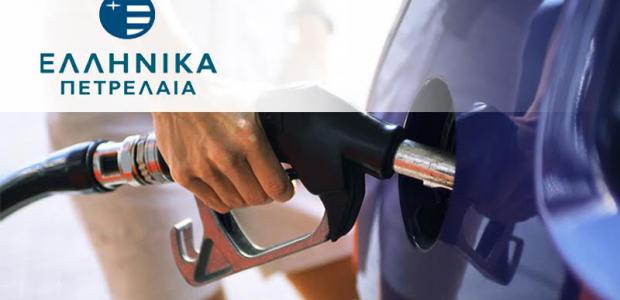Fuel sales at ELPE (Hellenic Petrolum) increased by five percent in February, year-on-year, but it remains unclear whether this encouraging company development suggests an overall turnaround for Greece’s fuel market.
Auto diesel fuel sales increased by 15 percent, but heating fuel sales fell by 35 percent, subdued by the warmer-than-usual winter weather, while marine fuel sales increased sharply. More specifically, marine diesel oil sales rose by 50 percent and mazut sales were up 35 percent.
Whether the rise in fuel sales experienced at ELPE in February reflects a wider trend will be made clearer over the next few days when more market data becomes available.
January proved to be a poor month for fuel sales in Greece, compared to the equivalent month a year earlier. Unleaded fuel sales fell by 9.7 percent, auto diesel fuel sales were down 7.7 percent, heating fuel sales dropped by 17 percent, marine diesel oil sales fell by 18 percent, mazut sales fell 10 percent, and LNG sales dropped by 4.7 percent. Jet fuel was the only fuel product to register a sales increase in January compared to the same month a year earlier, rising by 4.3 percent.
Certain market pundits believe that January’s poor fuel sales figures may be linked to the month’s increased fuel stock levels, a customary January condition resulting from bigger orders placed by companies in preceding months, which subsequently reduces order sizes in January.
Sales trends aside, fuel sector officials are alarmed by the reports of possible fuel tax increases. Fuel sales will inevitably decline, the state will lose rather than gain tax revenues, while illicit fuel trading activity will rise as consumers seek cheaper fuel stations, officials warn.
Between 2010 and 2016, auto fuel sales fell by 34 percent and heating fuel demand plunged by 53 percent following two major tax hikes for fuel (special consumption tax and VAT). During this period, between 3,500 and 4,000 fuel stations went out of business, roughly 10,000 ot 12,000 jobs were shed, not including several thousand indirectly linked job losses, while the market was flooded with provisions for bad debt worth millions of euros.
Meanwhile, fuel smuggling practices have remained virtually untouched. An “inflow-outflow” data system legislated by a preceding administration back in 2012 with the objective of tracking petrol station fuel purchases and sales is not yet fully operational. Also, a plan to fit GPS systems onto fuel trucks as a means of monitoring their moves has not been completed. Illicit trade for marine fuel is rampant.





